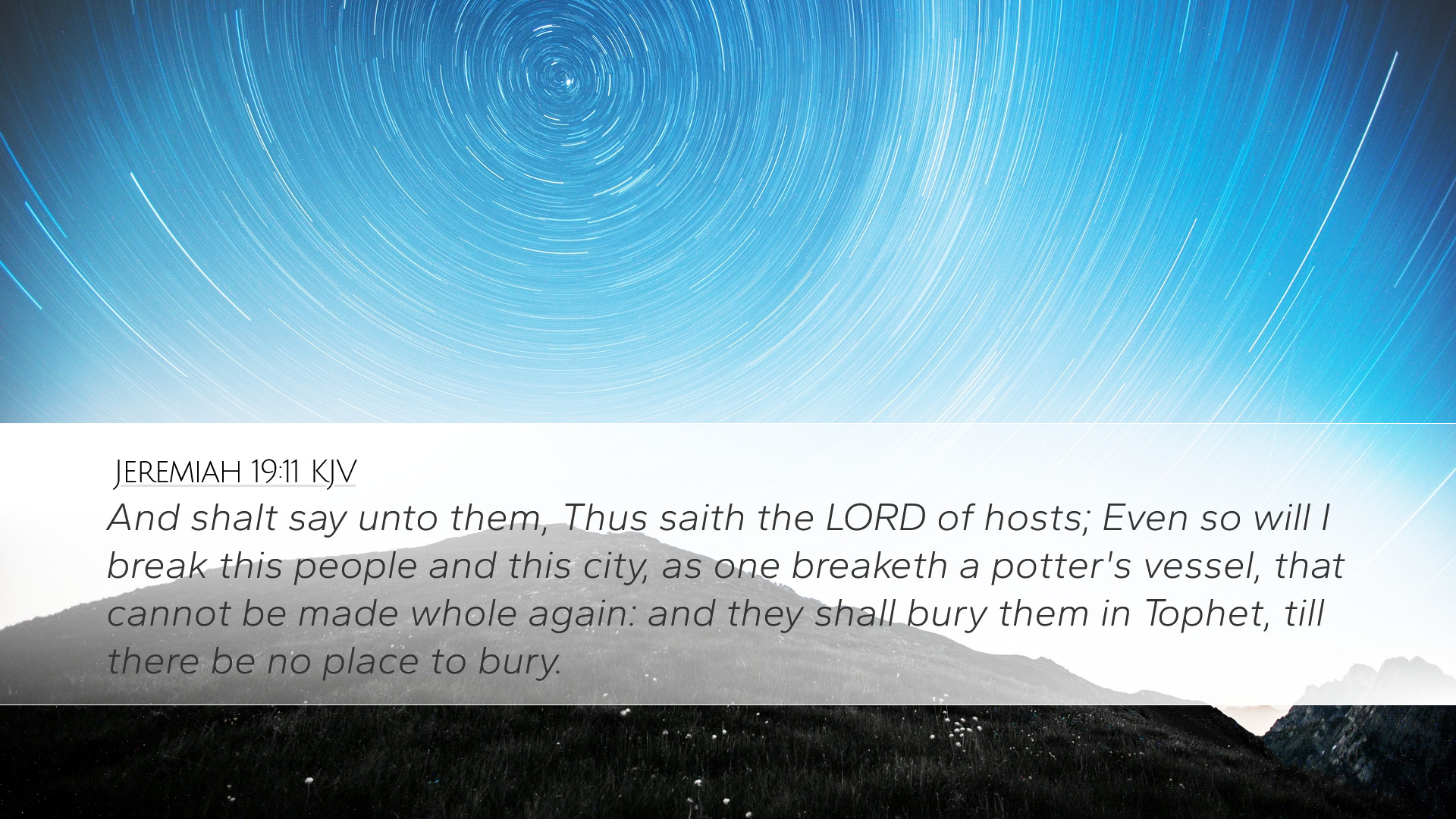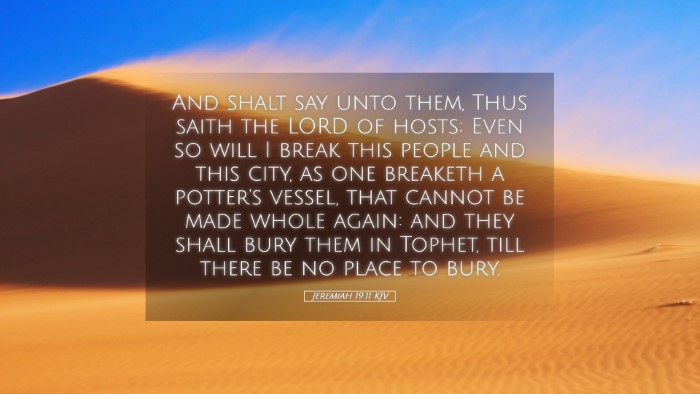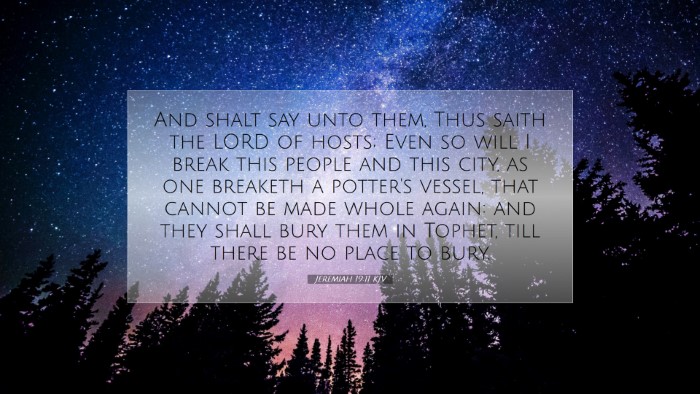Commentary on Jeremiah 19:11
Verse Reference: Jeremiah 19:11 - "And say unto them, Thus saith the LORD of hosts; Even so will I break this people and this city, as one breaketh a potter's vessel, that cannot be made whole again: and they shall bury them in Tophet, till there be no place to bury."
Overview
The verse carries a heavy weight of judgment couched within a metaphor that evokes the fragility of human constructs and the irrevocable nature of God's decree. In Jeremiah's prophecies, this vivid imagery serves to illustrate the totality of destruction that awaits Jerusalem and its inhabitants due to their persistent sin and rebellion against God.
Contextual Background
The book of Jeremiah is situated in a time of impending doom for Judah, filled with divine warnings and calls to repentance. The context of this specific prophecy lies in God's clear message about His unyielding judgment against a people that have turned from His ways.
Historical Context
Jeremiah prophesied during the reign of King Josiah to the last kings of Judah, a period marked by corruption, idolatry, and social injustice. The impending Babylonian captivity loomed large as a backdrop to these prophetic declarations.
Commentary Insights
Matthew Henry's Insights
Matthew Henry reinforces the potency of the metaphor used in this verse. He emphasizes that just as a potter can break a vessel without hope of restoration, so too will God break the nation of Judah. This serves to highlight the consequences of their actions: a complete and utter destruction that leaves no possibility of recovery.
Albert Barnes' Observations
Barnes notes that the breaking of the potter's vessel symbolizes God's sovereign authority in delivering judgment. The fragility of the vessel represents the people of Jerusalem, whose hardened hearts have led them into a state of inevitable destruction. This commentary draws attention to the serious implications of turning away from spiritual truths and divine commands.
Adam Clarke's Exegesis
Clarke elaborates on the significance of the term "Tophet," referring to a place of burning associated with idolatry and a grim fate. He indicates that the name Tophet symbolizes the ultimate fate of those who disregard God's warnings: not only physical death but spiritual alienation from Him. The finality of the destruction underscores a broader theological principle regarding God's justice.
Theological Implications
This verse prompts several crucial theological reflections:
- Judgment and Justice: The imagery serves as a stark reminder that divine justice cannot be circumvented. God's judgment is both comprehensive and decisive.
- Fragility of Life: Humanity's condition is depicted as exceedingly fragile, akin to clay in the hands of a potter. It urges recognition of human limitations and dependence on divine mercy.
- Repentance and Hope: Although the message is one of judgment, it inherently points to the necessity of repentance, suggesting that the dire conditions may be averted through genuine return to God.
Practical Applications for Today
For pastors, students, theologians, and scholars, Jeremiah 19:11 opens avenues for practical application:
- Message of Repentance: The call for repentance remains as relevant today as it was in Jeremiah’s time. This scripture serves as a reminder to confront sin and seek restoration.
- The Role of Leadership: Leaders are accountable for guiding their people in ways that align with divine truth, reflecting the responsibility seen in Jeremiah's ministry.
- Recognition of Divine Authority: Understanding that God has sovereign authority over nations and lives instills a proper fear of the Lord and encourages prayer for mercy and guidance.
Conclusion
Jeremiah 19:11 encapsulates a powerful message about the severity of divine judgment and the nature of human vulnerability. The insights from Matthew Henry, Albert Barnes, and Adam Clarke collectively present a profound theological landscape for understanding the balance of justice and mercy, urging modern readers to evaluate their relationship with God critically.


